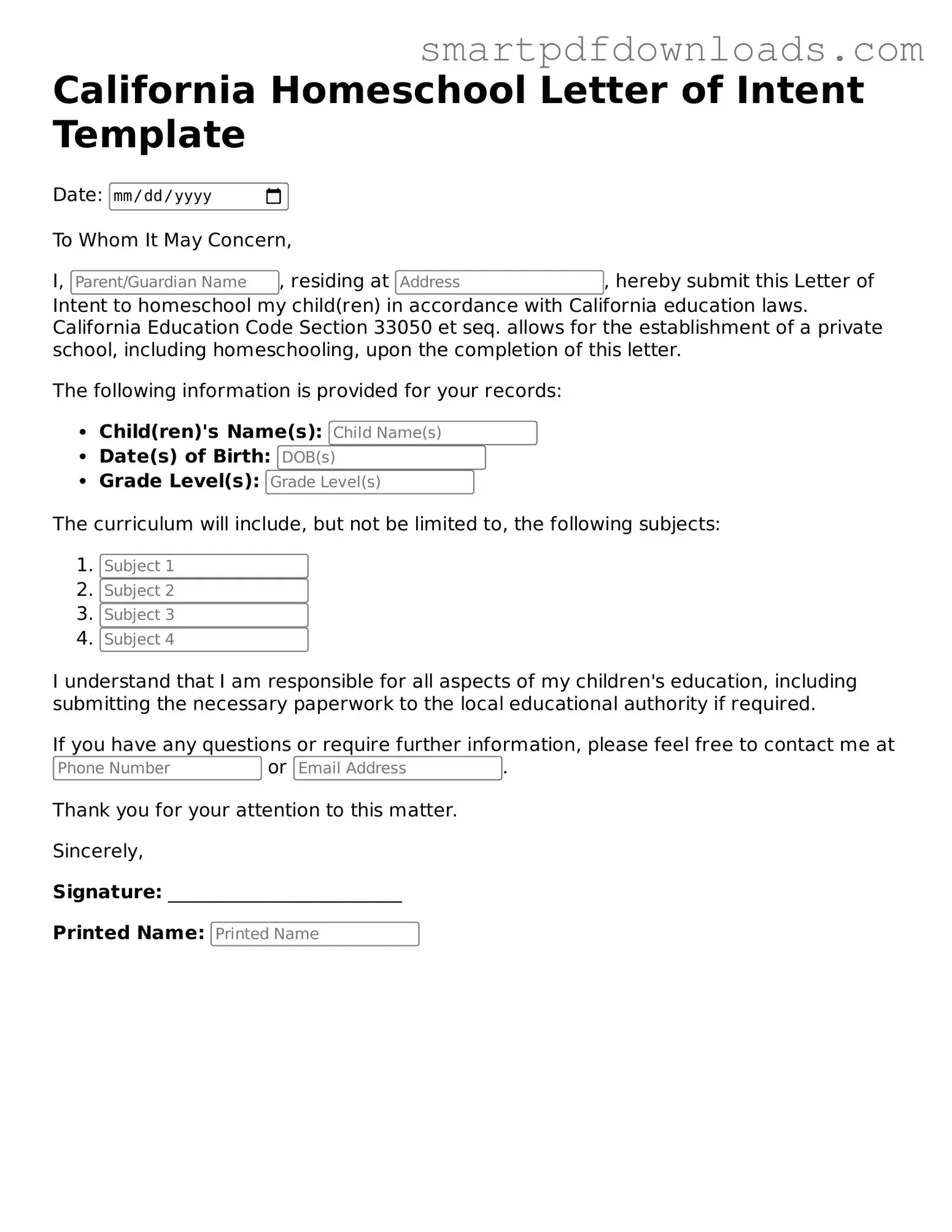Legal Homeschool Letter of Intent Form for the State of California
The California Homeschool Letter of Intent is a crucial document that families must submit to officially declare their intent to homeschool their children. This form serves as a formal notification to the local school district, ensuring compliance with state regulations. Understanding its purpose and requirements can help streamline the homeschooling process and provide clarity for families embarking on this educational journey.
Edit Homeschool Letter of Intent Online

Legal Homeschool Letter of Intent Form for the State of California
Edit Homeschool Letter of Intent Online

Edit Homeschool Letter of Intent Online
or
⇓ PDF File
Finish the form and move on
Edit Homeschool Letter of Intent online fast, without printing.